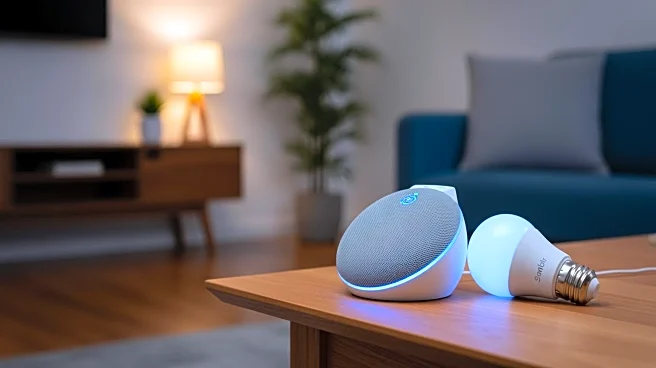What's Happening?
TDK discusses the impact of IoT on smart homes, highlighting how interconnected devices enhance comfort, efficiency, and security. The article explores the components of IoT systems, including sensors,
actuators, connectivity, data processing, and user interfaces. It emphasizes the role of IoT in transforming homes into responsive and adaptive environments, with smart thermostats, lighting systems, and security devices playing key roles.
Why It's Important?
IoT is central to the evolution of smart homes, offering unprecedented levels of convenience and security. As more devices become interconnected, homeowners can enjoy enhanced living experiences, with automated systems that respond to their needs and preferences. This trend reflects a broader shift towards more connected and efficient living environments, driven by advancements in IoT and AI technologies.
What's Next?
The future of smart homes involves integrating AI and machine learning into IoT systems, creating environments that learn from user habits and adapt in real-time. Voice assistants will become more context-aware, enhancing user interaction with smart devices. The introduction of 5G technology will further revolutionize IoT in homes, offering faster and more reliable data transfer between devices.
Beyond the Headlines
The integration of IoT in smart homes raises ethical and privacy concerns, as homes collect and transmit data. Ensuring the security of this information is paramount, and manufacturers must implement robust security measures to protect homeowners from cyber threats. The industry must also address issues of data ownership and user control, ensuring transparency and trust.









